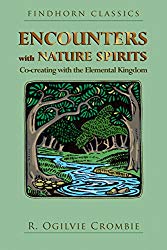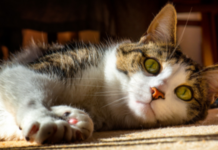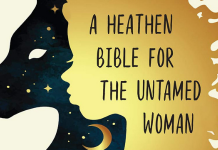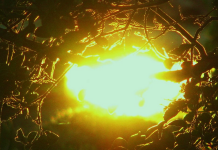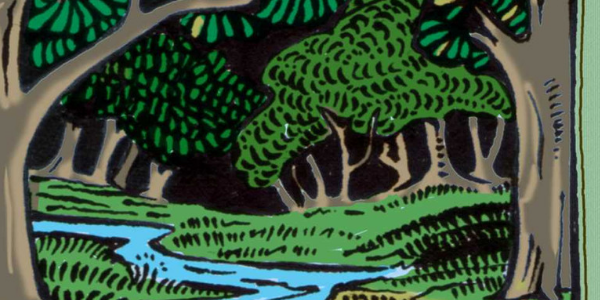
Encounters with Nature Spirits: Co-creating with the Elemental Kingdom, by R. Ogilvie Crombie
Findhorn Press, 9781620558379, 232 pp., 2018
Encounters with Nature Spirits: Co-creating with the Elemental Kingdom by R. Ogilvie Crombie (1899-1975) is one of those rare books that immediately takes you out of your head and transports you into the woods or a park, sun shining down and warm, as you observe the play and interactions of those lesser seen beings. This little treasure is separated into bite-size chapters and explores the relationship between the author R. Ogilvie Crombie (ROC, as he is affectionately known), Pan, and the many and diverse elementals and spirits of the natural world.
There is no doubt that Ogilvie was an initiate of an ancient and veiled spiritual tradition… (he) never revealed his spiritual lineage, but it’s clear he had a profound understanding, not only of what used to be called “the occult” but of all the world’s major religions, and many of its more obscure ones.1
The first chapter, “Afternoon With A Faun,” begins the journey of Crombie into the mysteries of the natural world, when he sees a faun dancing about a tree. As any rational man would do, he dismisses this as fancy, yet the visage persists, and he relinquishes disbelief as we are also reminded that “here was a strange and wonderful experience. Why should I not accept it, see what happened and analyze it later?”2
Thus begins the dialogue between man and the nature spirits of greater earth, as we too surrender our disbelief and read his recounting of a lovely afternoon’s revealing of what lay hidden, but hidden only by our own skepticism. As the years and chapters progress, we are reminded that once the doors have been opened, more will follow and the illusion of our separateness and aloneness in nature falls away.
My favourite encounter occurs in the third chapter, “Meeting Pan on Iona.” This chapter, in particular, speaks of the increasing disconnect between humanity and nature, the demonizing of the god Pan, and the sadness within that world devoid of human interaction. These meetings and interactions between ROC and the spirits of the natural world serve as opportunities for reconciliation, through the author’s retelling of his encounters and the relating of their words and thoughts.
One of the things that makes this book so relevant is that it opens up the possibilities that we co-exist beside an entire world that is not only living, breathing and evolving as we are, but that we can become co-creators of a more harmonious world, simply through recognition of this. These writings and philosophies came from one who was a scientist at heart and, driven by an innate sense of curiosity and a large dose of intuitive action, layered into that foundation proficiency in mythology, history, esotericism and the love of the fine arts. Add to this the fortune of living in Edinburgh, Scotland, in and of itself a natural sacred site, and you have the recipe for clear-headed analysis and openness to what lay beyond the realms of the usual human experience.
“The Wild Garden” exemplifies the impact a single individual can have on what has been tradition. The tradition of formal gardens was long established in Britain, and those gardens not so finely manicured gardens were off limits to humans, being the domain of the fairies and elves. Lest a human stray from the path and be seduced into the timeless realm of the fae. On the other hand, ROC, having long been in contact with Pan and others of the natural realm, knew the importance of respect and reverence for these lesser tended spaces, leaving them to be the domain of the elementals and wilder spirits. I felt this as a timely reminder of a call to return to caring for and nurturing the lands; having enough for all seen and unseen, and being mindful of leaving a legacy of nature our gentle hands and hearts.
The afterword of Encounters with Nature Spirits is written by Dorothy Maclean, the co-founder of the Findhorn Garden Community (with Peter and Eileen Caddy). The Findhorn Community developed from the resettlement of the Caddys, their children and Maclean to the Findhorn Bay Caravan Park in 1962. The three had dedicated their lives to the pursuit of esoteric studies and applications and the barren soil of the caravan park provided the setting of opening to the land spirits and guidance in how to live in harmony on the land. All that was planted in accord with the aid of the devas, elementals, and other nature spirits grew beyond expectation and the garden became a marvel within the horticultural world.
Word had quickly spread of Crombie’s accounts of communication with nature spirits and the effectiveness of his approach of collaborative working within the natural world. We learn that piqued by the dynamics of ROC’s abilities and the potential benefit to the Findhorn project, ROC and Dorothy met sometime in the later 1960s, well after regular contact with the nature spirits of Findhorn had been established and the community and gardens were thriving. The years following found ROC and the Findhorn Community collaborating, each informing the other of the experiences held in their own neck of the woods, so to speak, and we learn that the growth of Findhorn was further informed in its success by ROC’s more extended interactions and contacts within the realms of the nature spirits.
When ROC talked about his connection with nature beings, his imagination was clothing these entities in images arising from the many planetary cultures… in this case images from Greek mythology…. he was picking up thought forms already existing within the collective consciousness of humanity. ((p. 181-182))
I could go on and on offering praises to the value and content of Encounters with Nature Spirits, but this is one of those readings that has to be experienced first hand. As I read further into the book, I found myself doing so outside, surrounded by nature, imbibing in a fully visual and tactile experience calling me home. Did I see any nature spirits in my travels? Ah, that is mine to know, and yours to find out!


